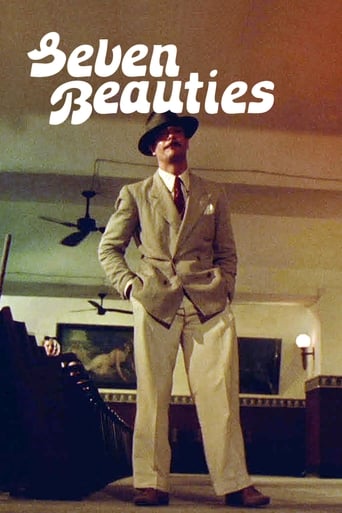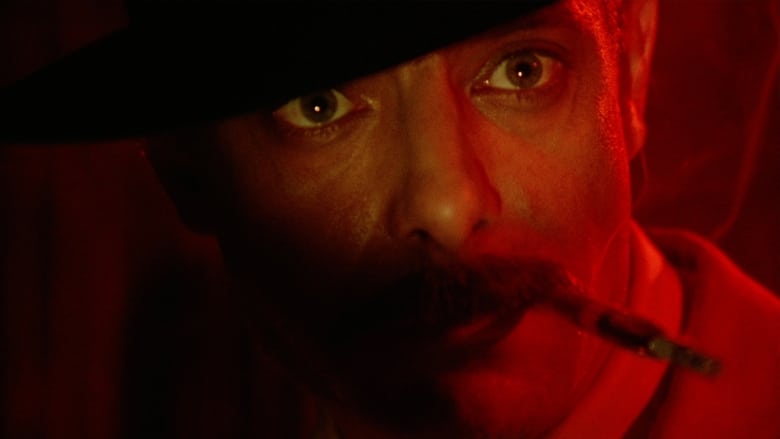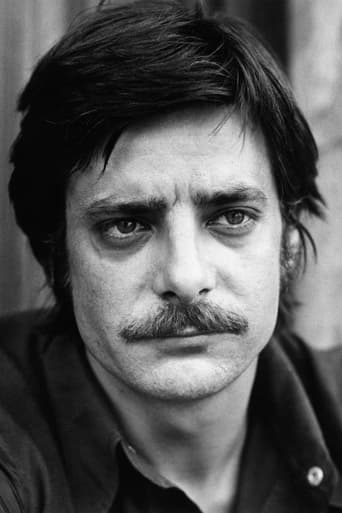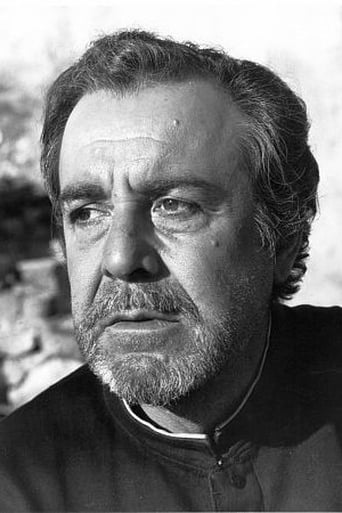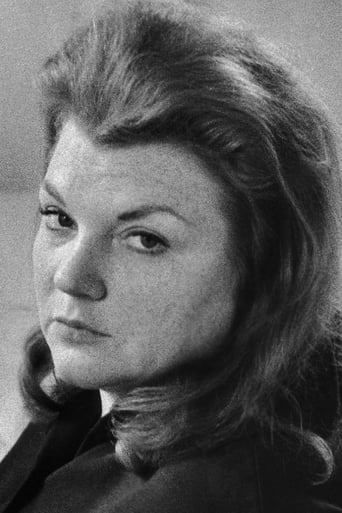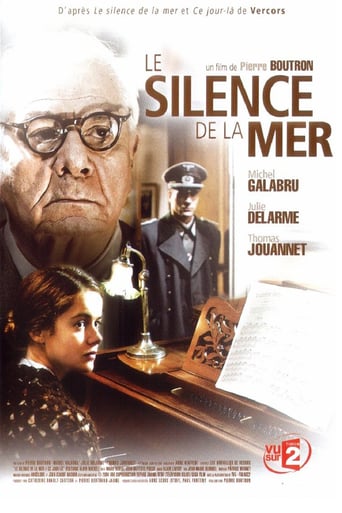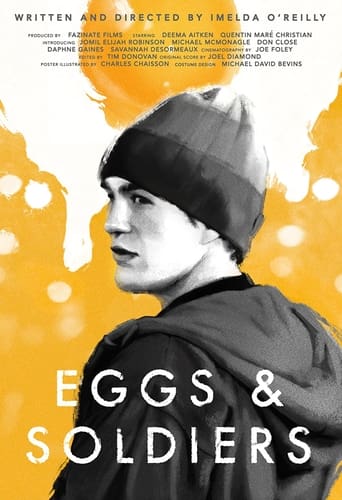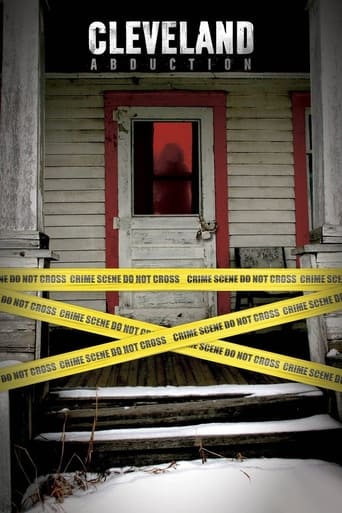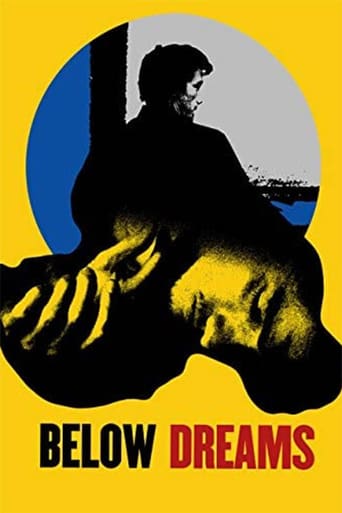Seven Beauties (1976)
Pasqualino Frafuso, known in Naples as "Pasqualino Seven Beauties" is a petty thief who lives off of the profits of his seven sisters while claiming to protect their honor at any cost, Pasqualino is arrested for murder and later sent to fight in the army after committing sexual assault. The Germans capture him and he gets sent to a concentration camp where he plots to make his escape by seducing a German officer.
Watch Trailer
Cast
Similar titles
Reviews
I like the storyline of this show,it attract me so much
Best movie ever!
I cannot think of one single thing that I would change about this film. The acting is incomparable, the directing deft, and the writing poignantly brilliant.
One of the most extraordinary films you will see this year. Take that as you want.
This film deals with idealism vs. pragmatism. The main character starts off deeply caring about his honor, then gradually gives it all up until he becomes a prostitute for the Nazis and complies in killing his friend for his own survival. Several of his peers retain their ideals, refuse to submit, and die pathetic deaths.The film seems to be admitting a harsh truth of reality: that life is ultimately about survival and that ideals and thoughts are not important beyond how they influence our actions. At some point they hold us back and we're better off abandoning them.At one point the Nazi female commander laments that the Nazis are trying to make humanity better but doomed to fail, and the snivelling rats who will do anything to survive (the main character) will continue on. This is a good point. The Nazis were idealistic too in wanting to elevate humanity.So the film isn't on the side of idealism or pragmatism. Clearly humanity is a complex combination of both; every person has some degree of fundamental ideals and some degree of flexibility and pragmatism. And there are many different ideals that are in opposition to one another.One of the idealist characters at one point mentions a possible resolution that is popular: for humans to turn into sheep. If we can only stop evolution and eliminate violence from the world, we can live happily ever after.The film is otherwise lacking in insight. It's not clear what it views as a resolution. It does seem clear that the film isn't happily embracing the world as it is, give its sombre tone.The film starts out with a montage of stock footage of Hitler and Mussolini set to cartoonish music and a voice narrating some phrases that sound like they're probably insulting. A short ways in, we see evil Nazis shooting innocent women and children in the forest. At one point, the dialogue is set up for one character to defend Mussolini and another, wiser character to rebut all of their arguments and explain why Mussolini was bad. Finally, the characters end up in a concentration camp where evil Nazis shoot innocent prisoners for no reason. Who knows what the director really believes - she isn't telling us - but the apparent heavy anti-Nazi, Nazis-are-pure-evil bias of the film is annoying.The film is otherwise fairly mediocre. Far from a masterpiece. It's an odd mixture of genres. Not very funny. The best thing about it is probably the excellent acting of the main character.
"Seven Beauties" opens with a strange sequence. Over horrific WW2 documentary footage, a character called Pasqualino Settebellezze recites a monologue, pausing every now and then to say "oh yeah" in a rather kinky voice, whilst overly romantic jazz music more suited to a low budget porn movie plays bombastically in the background.Sex, violence and self-preservation, these are the themes this introductory sequence lays down, all of which director Lina Wertmuller will approach from various angles over the next hour and a half.The film then unfolds in non-linear fashion. We see Pasqualino and his companion bumbling through a forest. Having long deserted the Italian army, they are tired and dirty, desperate for a meal. It is then that the pair witness a massacre, the German army rounding up a crowd of Jews, ordering them to get naked and then mercilessly gunning them down. The two men then have a short debate. Was it their moral imperative to intervene? Would their intervention have been useless? Is running away morally reprehensible?As the film progresses, director Lina Wertmuller increasingly argues that running away is merely a form of prostitution, the survivor selling his/her humanity for survival. Self-interest, she says, is both human nature and a form of exploitation. Paradoxically, it is this self-interest – the need to survive – which causes atrocities and enables bloodshed to continue. Those who run, in other words, support the war machine. Are complicit in its smooth efficiency.The film then jumps back in time. Pasqualino is re-introduced to us a dashing and debonair playboy who has a gift for seducing ladies. He wears a flashy suit, is always well groomed and struts about like a womanising Don Juan. But of course Pasqualino is a fraud, always showing off in an attempt to hide his own poverty. To him, appearances are everything. As such, Pasqualino is obsessed with protecting his seven ugly sisters (the seven beauties of the title), who are so desperate for money that they whore themselves out as strippers and prostitutes. Pasqualino deplores their behaviour. How dare they dishonour the family name! How dare they take part in such filth! This section of the film is thus a sort of darkly comic, domestic fairytale, the younger brother defending his older, quite unattractive sisters, against the onslaught of disrespect posed by everybody in the village. But once Pasqualino pulls a gun on a local pimp (for insulting his sister), the film shifts gears and becomes a dark tale of survival. Pasqualino goes on the run from the law, chops a body into little pieces and engages in all manners of theft, rape and pillage, all in the name of survival. The very man who condemned others for prostituting their bodies, becomes a whore to the world, doing every despicable act required to ensure his continued existence.The last half of the film literalizes these themes further. Pasqualino is captured and placed in a German concentration camp run by an evil female camp commandant (Shirly Stoler in the role that made her famous). Trapped in the camp and fearing for his life, Pasqualino must use his skills as a womaniser to seduce this embodiment of evil. And so, in one long sequence that is as funny as it is gross, Pasqualino flirts, seduces and makes love to the camp commander. The last shreds of his dignity are instantly evaporated.The film ends with Pasqualino in Italy, offering his hand in marriage to a young woman. She agrees, at which point he promptly discusses the prospect of having babies. Pasqualino wants countless children. Why? Because only through them can he ensure his survival. And so, quite despicably, life has once again found a way.Of course on another level, one can also look at Pasqualino as Italy personified, the country selling her soul to fascism in the name of personal survival. Incidentally, with "Seven Beauties" Wertmuller also continues her trend for inserting veiled (anti?) feminist statements in her films. The piggish camp commander is a jab at the kind of man-hating "strong women" who set the agenda for female equality by demeaning and undermining others. She's no better than the patriarchal power players she despises.8.5/10 - The Italians made the best Holocaust films. Unlike the "Allied Nations", they experienced the Holocaust's horrors first hand, participated in its evils, and possessed the right mixture of blame, introspection, anger and disgust to represent the event truthfully. The Germans, swathed with guilt, couldn't even approach the topic until a good half a century later (until recently, Holocaust movies have come out of every country BUT Nazism's country of origin). Scapegoated and demonized, international pressure coupled with their own insecurities, Germany was prevented from seeing itself as anything other than one dimensional "bad guys".Note: This film was a huge influence on Italian filmmakers. Roberto Benigni's "Life is Beautiful" rips this picture off shamelessly whilst Coppola would base his "Ride of the Valkyries" sequence in "Apocalypse Now" on the "Ride of the Valkyries" sequence in this film. More interesting Holocaust films: "Korczak", "The Garden of Finzi Continis", "Border Street", "Diamonds of the Night", "Europa Europa", "Fateless", "The Last Stop", "The New Land", "Passenger", "The Pianist", "The Pawnbroker", "The Wannsee Conference", "The Shop On Main Street", "The Boat is Full".
For most films that I praise, I would jump at the opportunity for another viewing. Not so with Pasqualino Settebellezze (Seven Beauties). It explores extremely disturbing and sickening ideas that I hate to think about. Unfortunately, I feel that watching it is necessary. It is an Italian film about a man named Pasqualino Frafuso. A soldier for fascist Italy in World War II, he is a despicable but complicated character. I hated him for practically the entire film, although I noticed a hint of sympathy towards the end. Thats not to say he was a bad character; Giancarlo Giannini does an amazing performance as Pasqualino. His postures, expressions, and mood were perfect. After he does something horrible, you can sense regret in his character as he develops. Highly imperfect characters are usually a gamble, but it worked out well in this case.The plot alternates between two phases of Pasqualino's life. The first begins with Pasqualino deserting his army train during combat. After wandering into a forest, he and a friend get captured by Germans and sent to a concentration camp. The recreation of the concentration camp is eerily spot-on. At this point, Pasqualino vows to find a way out of the camp. He faces a grueling trial to gain the affection of a physically and mentally unattractive female Nazi commandant. The second plot line reviews Pasqualino's life as a young man with seven sisters. We see the destructive flaws in his character. All of the crimes he commits as a young man return to haunt him when he is in the camp.The film does not hold back on political or social messages. Pasqualino is revealed as a character who does not think beyond self preservation and reputation, making him the perfect tool. He endorses Mussolini's beliefs just to make life easier for himself. When people with real political ruminations talk to him, he rubs off their ideas without a second thought. He begins to understand his mistakes toward the conclusion of the film, but is forced into tough circumstances.Pasqualino Settebellezze does not fear to explore the boundaries of society that many people choose to ignore. If you are going to watch this, be prepared.
I saw this film in the late 70's and ran the entire gambit of emotions while viewing it. I never thought I could laugh at such violence and at the hideous Nazi acts of the concentration camps and at the same time feel like heaving my guts on the theatre floor. I am going to have to track down a DVD of this movie to watch it again.As good as Shindlers list was, I found it pale by comparison to "The seven Beauties". It is a wild ride and I can not recommend this film highly enough.What disturbs me is that I have yet to talk to another person who has seen this movie.And a side note: Madona should be crucified for remaking Swept Away.Charlie
